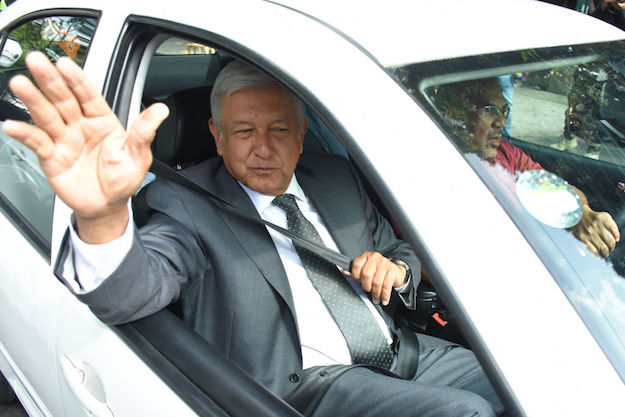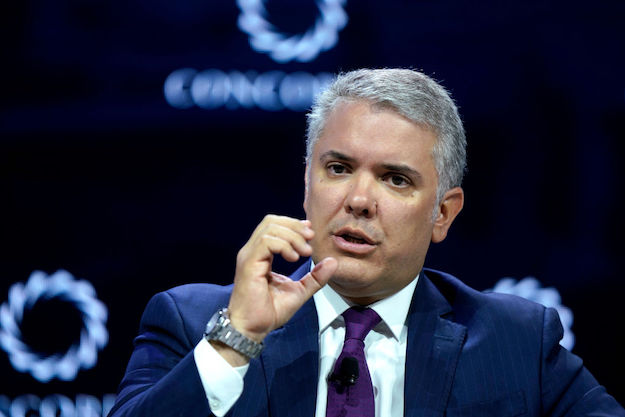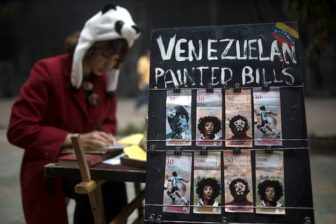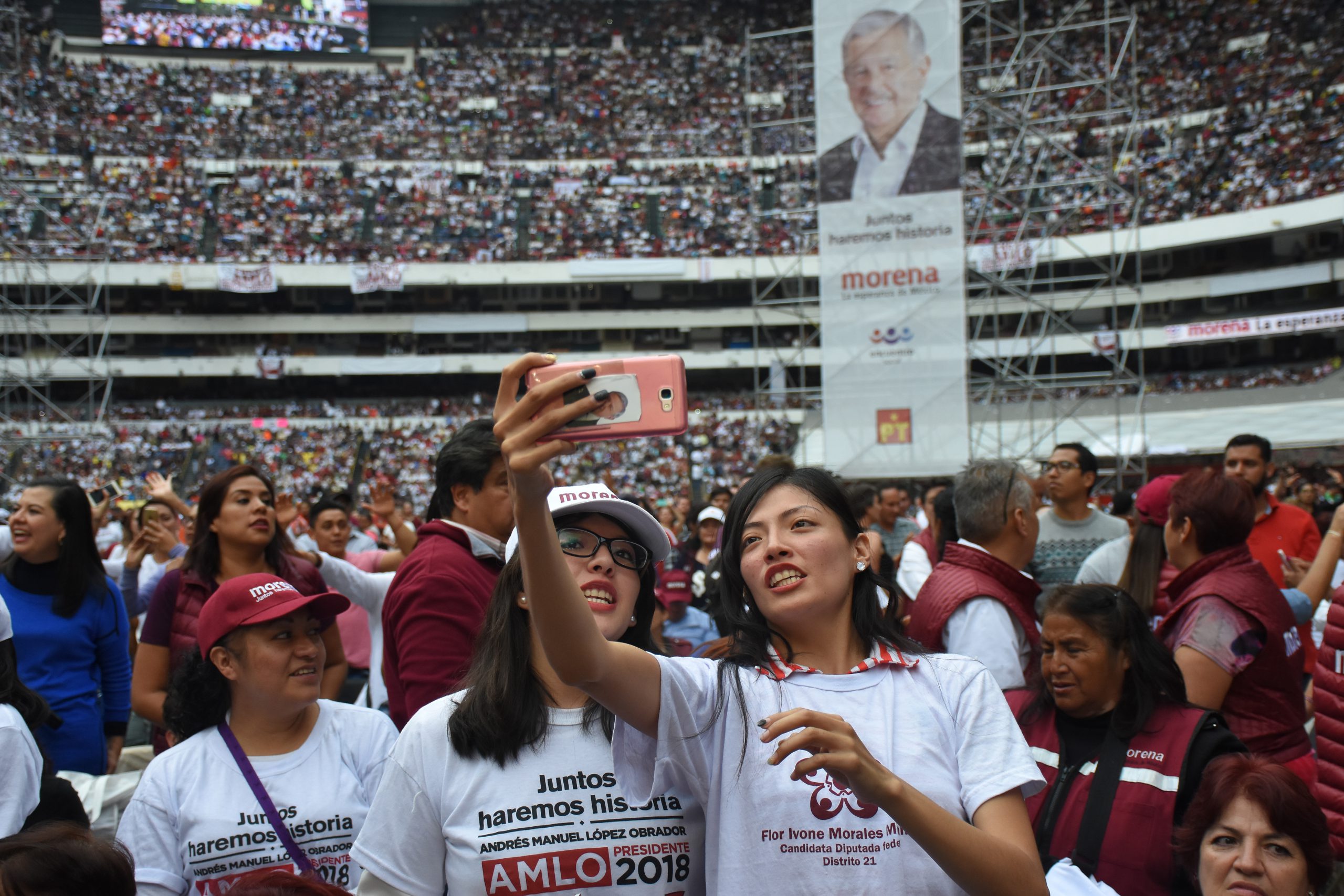After his overwhelming election victory on July 1, Andrés Manuel López Obrador wasted no time in trying to calm the nerves of business leaders who worried his arrival would mean a radical shift for Mexico’s economy. A July 4 meeting with the CCE, a business association, reportedly left some of Mexico’s most prominent private sector figures “enthusiastic” about what lies ahead. AMLO, as he is known, looks set to continue the charm offensive this week, with meetings planned Monday with two leading industry groups, and on Thursday with Mexico’s state governor’s association.
It’s too soon to tell what kind of leader López Obrador will be when he takes office on Dec. 1. But in the few days since the election, Mexico’s next president has left clues as to which campaign promises he’s most committed to keeping. The verdict so far? Mexican voters are getting what they bargained for. Here’s a look at the good, bad and uncertain of AMLO ’s first week as president-to-be.
The Economy
López Obrador followed a market-soothing victory speech by tapping Gerardo Ezquivel, a widely respected economist and academic, as undersecretary for spending. An increasingly moderate-looking economic team spent the week reassuring the private sector that López Obrador means what he says about fiscal discipline and respect for business. Carlos Urzúa, his nominee for finance secretary, said the administration would pursue a budget surplus and eventually tackle pension reform. Though lower than some Latin American neighbors, pension spending in Mexico has risen steadily in recent years and is projected to take up 40 percent of the budget by 2030.
Left uncertain is how López Obrador will make his campaign promises match up with the goals enunciated by his advisers. In a second, more rabble-rousing victory speech on election night, López Obrador repeated a campaign promise to double pension payments for seniors, extend benefits to the poor and disabled, and offer job training to young people. He has since said these showcase social programs will cost 150 billion pesos (about $7.9 billion). López Obrador claims that cracking down on corruption, and making sure government agencies stay on budget, will help pay for the proposals. Last year, government spending exceeded the budget approved by Congress by 131 billion pesos.
But even if corruption is as easily rooted out as López Obrador claims, other campaign promises, such as an increase in health care spending to 1 percent of GDP, will be difficult to meet. At 47.2 percent of GDP, López Obrador is set to inherit a debt load larger than any incoming Mexican president in recent history.
Corruption
López Obrador’s election afterglow dimmed for the first time on July 6 when he rejected a civil society proposal aimed at bolstering the independence of Mexico’s newly reformed chief prosecutor’s office. He had already declined to support the proposal during the campaign. Instead, López Obrador says he’ll send a list of candidates for attorney general, as well as picks for top anti-corruption and electoral crime prosecutors, to the Senate for consideration.
AMLO frequently says that you have to fight corruption from the top down. But his belief that his own propriety will inevitably lead to clean government has worried observers throughout the campaign.
“López Obrador sends the signal that he’ll be honest, that he won’t accept corruption among his collaborators,” Edna Jaime, the director of México Evalúa, told AQ. “But how is he going to control that? There need to be institutions. There needs to be detection.”
López Obrador also received criticism this week for inviting Manuel Mondragón y Kalb, a security official under President Enrique Peña Nieto, to be part of deliberations over his administration’s security policy. Mondragón played a key role in the forcible removal of protesters from Mexico City’s main square in 2013.
López Obrador responded to the criticism by pointing out that Mondragón has not been given a position in government. But Mondrágon’s appearance speaks to fears that López Obrador’s big-tent Morena party, in opening its arms to public officials with questionable records, will turn out to be more like the old PRI than the fresh start it promises.
Energy
López Obrador’s campaign trail pronouncements on Mexico’s newly opened energy sector have shifted over time. For the last several weeks, he and his team have said they will leave a 2013 set of pro-market reforms in place, but review contracts signed by the current administration with multinational oil companies for signs of corruption.
Given recent scandals related to government contracting, the plan strikes many Mexicans as perfectly reasonable. The national oil and gas commission this week welcomed the idea, expressing confidence that its licitation procedures were transparent and above board.
Other aspects of López Obrador’s energy policy are harder to justify. On Friday he said that a plan for building one or two new oil refineries – a major campaign pledge – would be ready next month. He also committed to upgrading existing refineries in an effort to increase Mexico’s abysmal utilization rates (the level of refining capacity in operation). López Obrador said that a refinery could cost $8 billion to build, and that within three years Mexico would stop importing gasoline entirely.
But refinery upgrades alone would reduce the rate of gasoline imports to consumption to about 30 percent, according to the International Energy Agency. Many experts are skeptical that the high cost and low margins of new refining capacity would make a for logical investment.
Trump
And then there’s Trump. López Obrador had what he deemed a respectful call with the U.S. president the day after winning the election, and has since stressed his desire for a constructive relationship with the country that takes in nearly 80 percent of Mexico’s exports. Still, López Obrador’s frequent assertion on the campaign trail that he will “make Trump come to reason” seems unlikely to bear out.
In sum, López Obrador’s first week has been marked more by a change in style than in substance. He has spoken highly of Peña Nieto (who he previously accused of participating in a smear campaign against him) and the press (which he dismissed as “fifi”), and will reportedly meet with his two closest competitors in the election to “thank them for acting responsibly.”
But the more conciliatory tone aside, López Obrador has largely recommitted to the ideas and positions he presented on the campaign trail – good, bad and ambiguous. Those include considering an amnesty for low-level crimes related to the drug trade and the questionable idea of holding himself to a recall vote three years into his term.
There is one other way in which AMLO has been unwavering: his ambition. If over the next six years López Obrador accomplishes half of what he has said he will do, Mexico will benefit. But getting there will not be easy.
—
Russell is AQ’s correspondent in Mexico City









